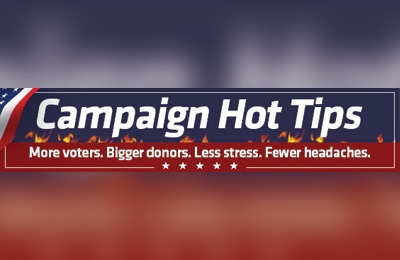Ronald Reagan once humorously quipped: “It has been said that politics is the second oldest profession. I have learned that it bears a striking resemblance to the first.”
The oldest profession, of course, is prostitution.
And with that in mind, I was re-reading marketing legend Dan Kennedy’s “No B.S. Sales Success” book this month and was particularly struck by this passage…
“I read a very interesting article years ago, where a number of prostitutes were interviewed. Many said that many of their ‘regulars’ often paid not for sex, they didn’t even have sex – but for someone to listen to them.
“Just recently, I saw a Geraldo show featuring operators of 900-number / 800-number ‘phone sex’ businesses who said the same thing – many regulars call and do not engage in explicit sex talk but instead talk about the day they had, their frustrations at work or at home, etc.
“This is just one of many situations that has convinced me that REAL listening is a rarity, and therefore immensely valuable and marketable.”
Let me second that emotion.
Back in 2018 I was managing the state legislative campaign of Dennis Hof, owner of a string of legal brothels in Nevada, who remarkably won his race with 62% of the vote . . . three weeks after he DIED.
And while staying (working on the campaign!) at the Bunny Ranch one weekend, I met a rather socially awkward tech engineer who was in for the weekend from Austin, Texas.
After he departed, the lady he spent time with explained that he paid $5,000 just to spend the night with her watching TV and talking about his life. NO SEX.
Let that sink in.
These folks could get “the other thing” somewhere else. Cheaper, too.
But they’ll fork over a fistful of cash just to have someone nod their head, keep eye contact, and act like they actually care about what they’re saying.
Now, if that’s not a political campaign lesson, I don’t know what is.
Most political candidates have a bad case of “talking disease.” Put a microphone in front of them and suddenly they’re filibustering like it’s the last day of Congress.
They mistake “campaigning” for “giving the same speech over and over until everyone in the room knows it by heart and wants to escape.”
But here’s the dirty little secret: Voters aren’t desperate to hear you talk. They’re desperate for someone to hear them.
In politics, listening is worth more than lawn signs, billboards, and those glossy mailers that end up in the recycling bin.
When you truly listen — not fake listening while planning your next clever line — you give the voter something rare: the feeling that they matter.
It’s like political gold. They walk away thinking, “That candidate gets me.” Not because you dazzled them with a policy plan, but because you shut your mouth long enough to let them feel heard.
Without getting you in legal trouble with Johnny Law, here’s the takeaway from the world’s oldest profession:
- Make It About Them: The client (or voter) is the star of the show. You’re just the supporting actor.
- Ask Questions: “What’s the biggest issue you’re facing right now?” “What do you think the city council is getting wrong?” Then listen — really listen — without jumping in to fix it mid-sentence.
- React Like It Matters: Nodding, clarifying, repeating their main point back to them — all little signals that say, “I’m tuned in.”
- Don’t Rush the Clock: If you’re constantly glancing over their shoulder looking for someone “more important,” congratulations — you’ve just lost their vote.
I’ve seen candidates transform entire campaigns just by flipping this switch. Instead of blasting through events like a speed-dating session with a stump speech, they slow down, talk less, and take mental notes.
The results? They walk away with stories they can use later, supporters who feel personally connected, and volunteers who’ll work for free because they believe the candidate “understands” them.
And the best part — you don’t have to spend more money to do it. Listening costs zero dollars. Well . . . unless you’re in the other business.
How to Train Yourself
- Set a Talk Timer. When you’re meeting someone new, limit yourself to 30 seconds of talking before throwing the ball back in their court.
- Carry a Notebook. Write down names, details, and follow-up points. Referring back to them later is political magic.
- Practice the Poker Face. You’ll hear some wild stuff. Don’t let your eyebrows give you away.
In politics, just like in . . . certain other industries . . . the most valuable service you can offer might not be what you think it is.
Sure, you need ideas, policies, and a vision. But none of that will land if people think you’re just another loudmouth who doesn’t have time for them.
So take a page from the oldest playbook in the world: Shut up. Lean in. Listen. It might just get you elected. And you won’t even need to post bail!
Seriously, if you don’t think listening – REALLY listening – to voters, donors, and volunteers is a valuable asset to your campaign, you’re nuts (no pun intended).

